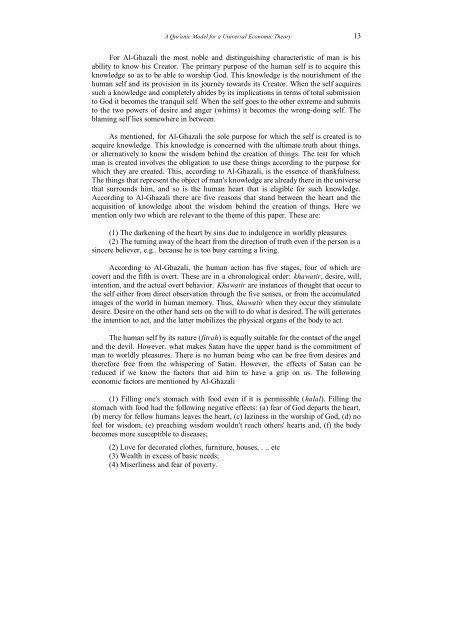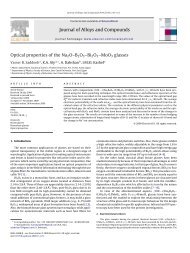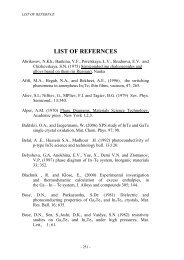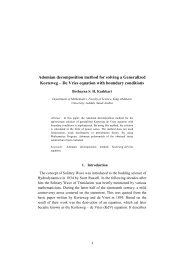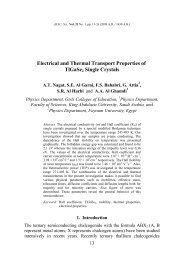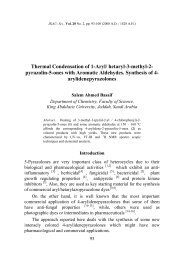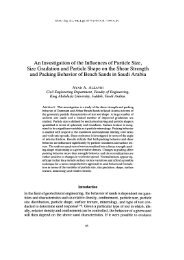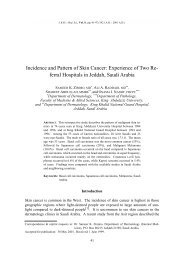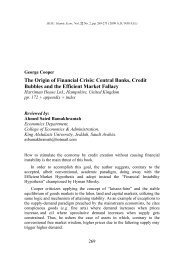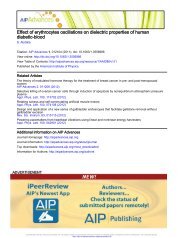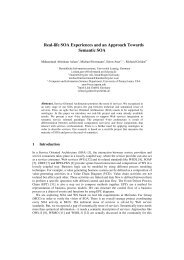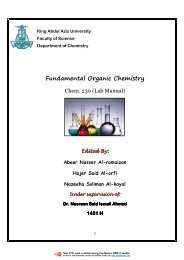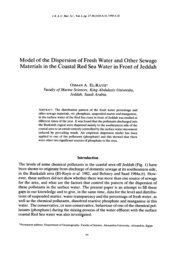A Qur'anic Model for a Universal Economic Theory
A Qur'anic Model for a Universal Economic Theory
A Qur'anic Model for a Universal Economic Theory
Create successful ePaper yourself
Turn your PDF publications into a flip-book with our unique Google optimized e-Paper software.
A Qur’anic <strong>Model</strong> <strong>for</strong> a <strong>Universal</strong> <strong>Economic</strong> <strong>Theory</strong> 13<br />
For Al-Ghazali the most noble and distinguishing characteristic of man is his<br />
ability to know his Creator. The primary purpose of the human self is to acquire this<br />
knowledge so as to be able to worship God. This knowledge is the nourishment of the<br />
human self and its provision in its journey towards its Creator. When the self acquires<br />
such a knowledge and completely abides by its implications in terms of total submission<br />
to God it becomes the tranquil self. When the self goes to the other extreme and submits<br />
to the two powers of desire and anger (whims) it becomes the wrong-doing self. The<br />
blaming self lies somewhere in between.<br />
As mentioned, <strong>for</strong> Al-Ghazali the sole purpose <strong>for</strong> which the self is created is to<br />
acquire knowledge. This knowledge is concerned with the ultimate truth about things.<br />
or alternatively to know the wisdom behind the creation of things. The test <strong>for</strong> which<br />
man is created involves the obligation to use these things according to the purpose <strong>for</strong><br />
which they are created. This, according to Al-Ghazali, is the essence of thankfulness.<br />
The things that represent the object of man's knowledge are already there in the universe<br />
that surrounds him, and so is the human heart that is eligible <strong>for</strong> such knowledge.<br />
According to Al-Ghazali there are five reasons that stand between the heart and the<br />
acquisition of knowledge about the wisdom behind the creation of things. Here we<br />
mention only two which are relevant to the theme of this paper. These are:<br />
(1) The darkening of the heart by sins due to indulgence in worldly pleasures.<br />
(2) The turning away of the heart from the direction of truth even if the person is a<br />
sincere believer, e.g.. because he is too busy earning a living.<br />
According to Al-Ghazali, the human action has five stages, four of which are<br />
covert and the fifth is overt. These are in a chronological order: khawatir, desire, will,<br />
intention, and the actual overt behavior. Khawatir are instances of thought that occur to<br />
the self either from direct observation through the five senses, or from the accumulated<br />
images of the world in human memory. Thus, khawatir when they occur they stimulate<br />
desire. Desire on the other hand sets on the will to do what is desired. The will generates<br />
the intention to act, and the latter mobilizes the physical organs of the body to act.<br />
The human self by its nature (fitrah) is equally suitable <strong>for</strong> the contact of the angel<br />
and the devil. However. what makes Satan have the upper hand is the commitment of<br />
man to worldly pleasures. There is no human being who can be free from desires and<br />
there<strong>for</strong>e free from the whispering of Satan. However, the effects of Satan can be<br />
reduced if we know the factors that aid him to have a grip on us. The following<br />
economic factors are mentioned by Al-Ghazali<br />
(1) Filling one's stomach with food even if it is permissible (halal). Filling the<br />
stomach with food had the following negative effects: (a) fear of God departs the heart,<br />
(b) mercy <strong>for</strong> fellow humans leaves the heart, (c) laziness in the worship of God, (d) no<br />
feel <strong>for</strong> wisdom, (e) preaching wisdom wouldn't reach others' hearts and, (f) the body<br />
becomes more susceptible to diseases;<br />
(2) Love <strong>for</strong> decorated clothes, furniture, houses, . .. etc<br />
(3) Wealth in excess of basic needs;<br />
(4) Miserliness and fear of poverty.


